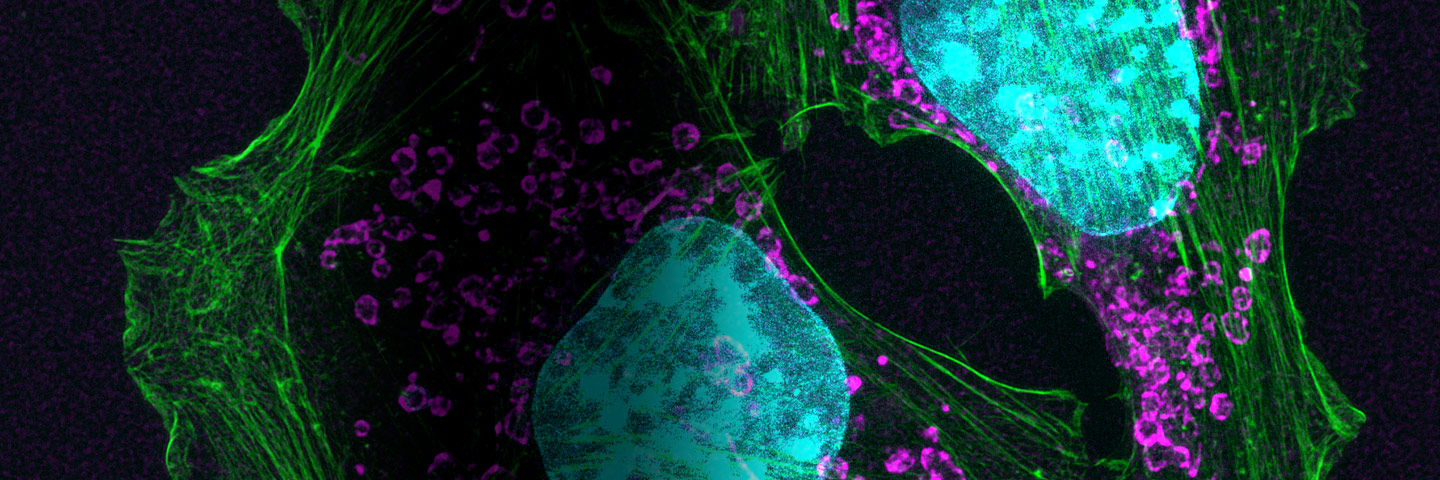
Trust your research with mouse cell STR profiling
In the past, there was no validated means to confirm whether your mouse cells were misidentified or contaminated, and, as a result, corrupting your research. Today, there is—through ATCC's FTA Sample Collection Kit for Mouse Cell Authentication Service, which uses short tandem repeat (STR) profiling. Already considered the gold standard for authenticating human cells, STR profiling is now the benchmark for authenticating mouse cells.
Validate your mouse cell lines
Just like forensic experts evaluate STR markers—tiny repeating segments of DNA found between genes—to identify people and individualize them from each other, we use STR profiling to uniquely differentiate between mouse cell lines. Using unique STR markers for different mouse cell lines, our mouse STR assay can validate the authenticity of any mouse cell line as well as detect contamination by human and African green monkey DNA.
Order mouse cell STR analysisTrust our experts
When you order our mouse cell STR profiling service, you can trust the integrity of the scientists behind it. Scientists from ATCC, the National Institutes for Standards and Technology (NIST), and 10 independent labs teamed up under the umbrella known as the Mouse Cell Line Authentication Consortium to create and validate this much-needed assay. The result is a standardized procedure for unambiguous authentication and identification of mouse cell lines. Additionally, we perform STR profiling following ISO 9001 and ISO/IEC 17025 quality standards.
Cell authentication is a funding and publication requirement
Routine testing of cell cultures is critical as cell lines frequently undergo misidentification, cross-contamination, and genetic drift. 1,2 Cell authentication is also now required by the National Institutes of Health for grant funding and by a number of scientific journals that have cell line authentication publication requirements. The Food and Drug Administration also requires validation of all materials included in investigational new drug (IND) applications.
When to test your mouse cell lines
Test your cell lines:
- When you receive a cell line into the laboratory
- After 10 passages
- After preparing a cell bank
- When in doubt
Learn about cell authentication and ATCC STR analysis in two minutes
ATCC mouse cell STR profiling is easy as 1, 2, 3
We’ve designed our mouse cell authentication service with STR profiling to be simple, fast, and affordable. We provide a pre-addressed envelope with a submission form and instructions. You can submit your mouse cells for testing in 3 steps:
- Place your order for our FTA Sample Collection Kit for Mouse Cell Authentication Service.*
- Spot your cells on an easy-to-use Whatman FTA card once the kit arrives. The cards contain chemicals that lyse cells, denature proteins, and protect nucleic acids from nucleases, oxidative degradation, and UV damage.
- Mail the dried sample to ATCC for analysis.
Once we receive your sample collection kit, our scientists extract the spotted DNA from the FTA cards. You’ll receive a comprehensive report from ATCC scientists within 3 to 5 business days.
*Discounts are available for larger volume authentication services.
Get the ATCC advantage: expert analysis from the leaders in cell authentication
Your ATCC Cell Line Authentication Service Mouse STR Profile Report contains:
- An easy-to-understand STR allele table
- Electropherograms that support the allele calls at each locus
- A comprehensive interpretation of the results
- A comparison of the cell’s profile against the ATCC Mouse STR Database
- Detection of human and/or African green monkey species
The report meets the requirements for National Institutes of Health funding, journal publication, and quality control for Food and Drug Administration submissions.
The ATCC difference: database comparison
Unlike other providers, we authenticate cell lines by comparing the STR profile of sample cell lines with the ATCC Mouse STR Database. If your cell lines are not from ATCC or no matching profile is found, we can still conduct a comprehensive interpretation of results and provide an STR profile. The results are confidential.
The ATCC difference: raw STR data analysis
Basic authentication requirements include a signed STR profile report showing the loci and qualified allele calls from an electropherogram which establishes the identity of the cells. The advantage of a signed report from ATCC is that our STR scientists are fully trained to analyze and report on raw STR data. Their analysis includes, but is not limited to, interpretation of stutter, off-ladder alleles, and various artifacts.
1 Capes-Davis A, et al. Check your cultures! A list of cross-contaminated or misidentified cell lines. Int J Cancer. Jul 1;127:1:1-8, 2010.
2 ATCC, The role of ICLAC (International Cell Line Authentication Committee)
